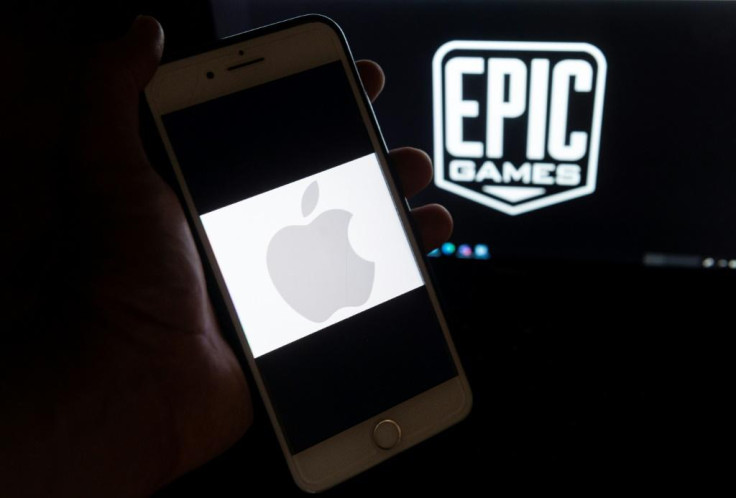Epic Scores Landmark Win Over Apple and Google in Australia, But Apple and Google's Next Move Could Change Everything

Epic Games, the developer of 'Fortnite', has secured a partial victory in its long-running legal dispute against Apple and Google in Australia, with a federal judge ruling that both companies engaged in anti-competitive conduct through their app stores and in-app payment rules.
This decision could reshape the distribution and payment of mobile apps in one of the world's key markets.
The judgment, delivered by Justice Jonathan Beach, upheld core competition claims while rejecting others, and prompted Epic to announce that the Epic Games Store and 'Fortnite' will return to iOS in Australia.
The Battle For 'Fortnite'
In 2020, Epic Games introduced its in-app payment method for 'Fortnite', which allowed it to avoid the fees collected by Google and Apple. As a result, the game was promptly removed from both companies' digital storefronts. Epic responded to the ban by taking legal action against both companies across several countries.
The company's Australian case focused on Apple's restrictions on in-app purchases, alleging they were a misuse of market power. Epic argued that by preventing alternative app stores and outside app downloads on iOS, Apple was unfairly reducing competition among app creators.
Epic also claimed that Google's actions were harmful to app developers and consumers in Australia. It argued that the company restricted their ability to choose how they distribute apps and handle in-app payments on Android devices.
Two Systems, Two Sets Of Rules
Apple's iOS and App Store operate as a fully closed and controlled system. This means that if an app on your phone requires a payment, that transaction must be processed through Apple's payment system.
Google's Android operating system has similar rules for its Play Store, but it also offers more flexibility. The system allows for 'side-loading' — the direct installation of apps on a phone without using the official store.
Additionally, it permits device manufacturers, such as Samsung, to operate their app stores. This is why 'Fortnite' remains available on Android, but only through these alternative methods.
The Commission Controversy
The companies each collect a portion of sales made on their respective platforms. Google Play, for example, takes a 15% commission from developers for their initial $1 million (£0.74 million) in annual earnings, with the percentage increasing to 30% for all sales exceeding that amount.
Apple's system is similar: creators pay a 15% charge if their revenue from the previous year was under $1 million (£0.74 million), but a 30% cut if they made more. These fees are standard in the industry—for comparison, Epic's platform takes a 12% commission from developers.
Epic maintained that it should be able to run its digital store to compete directly with Apple's. The company also argued that it should be allowed to use alternative payment systems within its applications sold through the official App Store.
The Court Steps In
Justice Jonathan Beach chose to hear the two separate Australian cases and the associated class action simultaneously. This consolidation was done to stop the same evidence from being presented multiple times by witnesses, according to a report by The Guardian.
Justice Beach delivered a ruling on Tuesday, determining that Apple had violated section 46 of the Competition and Consumer Act through behaviour likely to diminish competition. This behaviour included stopping the direct installation of apps on iOS and blocking developers from using other payment options for digital purchases.
Google was also found to be in breach of section 46 of the Competition and Consumer Act. This was due to its comparable Play Store payment system and a program called 'Project Hug', which allegedly offered incentives to developers to keep their apps on the platform.
A Victory, But With A Catch
The 2,000-page Australian judgment was not made public on Tuesday, but reports based on a judicial summary revealed a key detail: the smartphone firms had not deliberately broken the law. It is also important to note that Epic did not succeed with its remaining claims against the two corporations.
The Epic Games Store and Fortnite will come to iOS in Australia! An Australian court just found that Apple and Google abuse their control over app distribution and in-app payments to limit competition. There are 2,000+ pages of findings that we’ll need to dig into to fully…
— Epic Games Newsroom (@EpicNewsroom) August 12, 2025
Taking to X, Epic Games declared that its digital store and 'Fortnite' would be coming to iOS in Australia. The company, however, also pointed out the extensive 2,000-plus pages of findings, adding in a quote: 'we'll need to dig into to understand the details fully.' Epic celebrated the outcome as 'a WIN for developers and consumers in Australia!'
What's Next For Apple And Google?
Apple, in a statement, expressed pleasure at the court's dismissal of some of Epic's claims, but strongly disagreed with other parts of the verdict. The California-based firm added: 'Apple faces fierce competition in every market where we operate.'
In a similar vein, a Google representative said the court had recognised the clear contrast between Android's open platform and Apple's closed system. They also expressed satisfaction that the court rejected Epic's attempt to operate a separate digital store within the Google Play Store.
'We disagree with the court's characterisation of our billing policies and practices, as well as its findings regarding some of our historical partnerships, which were all shaped in a fiercely competitive mobile landscape,' the Google statement reads. 'We will review the full decision when we receive it and assess our next steps.'
The War For The App Store Continues
While Epic Games has secured a significant victory in the Australian courts, this legal win is just the first battle in a much larger war.
The stage is now set for a dramatic response from Apple and Google. Whatever their next move, it has the potential to ripple across the globe, fundamentally altering the landscape of app marketplaces for both developers and consumers alike.
The court's written reasons — reportedly split into volumes will guide remedies on fees, alternative billing, and access to third-party stores. The outcomes could echo Epic's recent wins against Google in the US and the EU's stricter stance on mobile gatekeepers, adding pressure on Apple and Google's global policies. But Australian changes may take months and could be narrowed on appeal.
© Copyright IBTimes 2025. All rights reserved.






















